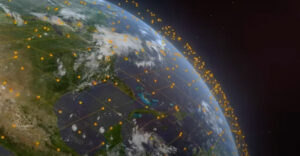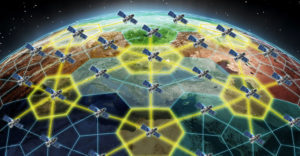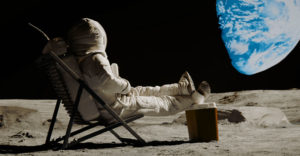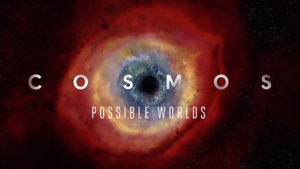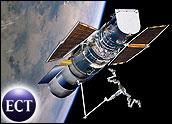
A problem that arose in NASA’s Hubble Space Telescope over the weekend means that many of the orbiting telescope’s key capabilities may be permanently lost, officials announced Monday.
The observatory entered protective “safe mode” on Saturday as a result of a power malfunction in its Advanced Camera for Surveys (ACS), the primary instrument aboard the telescope. Hubble was recovered from safe mode the next day, but officials are not optimistic about the chances of repairing the ACS, which had already been operating on redundant electronics as a result of a malfunction last summer.
A ‘Severe Loss’
The ACS, which was installed in March 2002, is a third-generation instrument consisting of three electronic cameras, filters and dispersers that detect light from the ultraviolet to the near infrared. It was developed jointly by NASA’s Goddard Space Flight Center, Johns Hopkins University, Ball Aerospace and the Space Telescope Science Institute (STSI), which conducts Hubble science operations for NASA by the Association of Universities for Research in Astronomy.
The Hubble Space Telescope is a project of international cooperation between NASA and the European Space Agency.
“This is a severe loss,” Mario Livio, senior astrophysicist with the Space Telescope Science Institute, told TechNewsWorld. “More than two-thirds of the observations currently done with Hubble are done with the ACS camera.”
What remains operational on Hubble now are two other cameras — the Wide Field Planetary Camera 2 and the Near Infrared Camera Multi-Object Spectrograph — and Fine Guidance Sensors. The Hubble’s next service mission, scheduled for September 2008, is already filled with other repair projects, so work on the ACS may not be able to be included then, Livio said.
The Next Generation
“Repairing ACS was not in the plan,” Livio explained. “We’ll be looking closely into whether or not we can add ACS repair, but the plan at the moment looks pretty full. It’s not clear whether it can be included.”
However, part of what is scheduled for that service mission is the installation of Wide Field Camera 3, a next generation device that may in fact outperform the ACS’ capabilities anyway, along with a new spectrograph, he added.
An Anomaly Review Board was appointed on Monday to investigate the ACS problem. After a thorough investigation and assessment, the board will present its findings and recommendations by March 2, NASA officials said.
Science Goes On
In the meantime, a set of backup non-ACS science programs — selected by STSI last November for use in case of a future ACS problem — will now be implemented.
“We are doing our best to try to see which programs can actually be done with the other equipment instead of ACS,” Livio stated.
STSI has also extended the Jan. 26 deadline for project proposals that relied on the equipment to give astronomers a chance to determine if their ideas can still be implemented without the ACS. “Some can be done, some can’t. Science will continue. We’ll do our best to do all the science we can with the existing instruments,” he declared.
A Question of Spectrum
“What makes the ACS so important is that it’s multispectral,” Paul Czysz, professor emeritus of aerospace at St. Louis University told TechNewsWorld. “It’s not just one camera but many that cover different parts of the electromagnetic spectrum, from infrared to ultraviolet.”
What we can see of outer space from Earth is filtered by the atmosphere, Czysz explained, so that in fact, we sometimes can’t see them as they are. With the Hubble telescope, we’ve been able to see about 12 billion years back in time, he added, “pretty close to the ‘big bang.'”
If the ACS doesn’t get fixed, our understanding of outer space could be compromised, Czysz said. “We’ll be losing the spectrum that that camera takes. We’ve got to get out of the atmosphere to really see, and that’s what Hubble did.”











